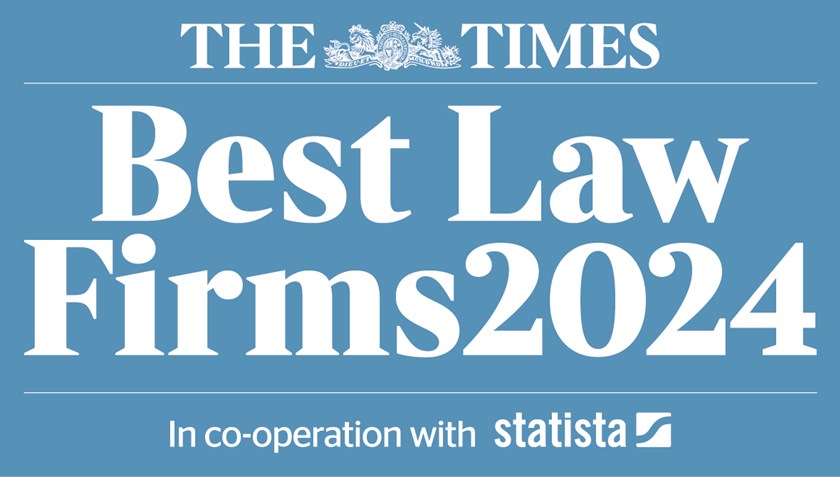In, Out, In, Out, Shake it All About? Charities, Campaigning and the EU referendum
News

As the EU referendum date of 23 June approaches and the prospect of a potential Brexit looms, many in the charity sector will be pondering what the likely impact of the vote will be for their organisation, and what – if any – role they wish to play in determining its outcome.
The result of the referendum will be momentous for the country as a whole, and many will be keen to influence the tenor of the debate over whether to "remain" or "leave". Charities wishing to participate in the national discussion will need to consider carefully how best to engage with the issues involved within the legal framework which applies to campaigning and political activity.
General principles
Charities are permitted to campaign and to engage in political activity where this is in furtherance of their purposes; they may not, however, engage in party political activity or allow political activity to be or become their sole and continuing work. Care must also be taken to avoid activity which might (or might be seen to) compromise a charity's independence and political neutrality. In considering whether to engage in campaigning or political activity, trustees should therefore have regard to the matters identified in the Charity Commission’s main guidance document on campaigning, Speaking out: guidance on campaigning and political activity by charities (CC9), as supplemented by its more targeted (and recent) guidance on elections and referendums. These matters are considered further below.
In order to assist trustees with their deliberations in relation to the EU referendum in particular, the Charity Commission has also published a supplementary guidance document entitled The European Union Referendum - the Charity Commission’s regulatory guidance for charities. The original version of this guidance attracted criticism from within the sector for its discouraging tone, its ambiguity, and its suggestion that charities should only get involved in any political activity connected with the referendum in "exceptional circumstances". In response, the Commission has made some amendments, perhaps most notably by clarifying that charities will only be deemed to be engaging in political activity if their involvement "can reasonably be seen as influencing the outcome of the referendum".
Key considerations
What is clear is that, in considering whether to engage with the referendum, charity trustees should give careful thought to what they hope to achieve by doing so and how this relates to their charitable purposes. Trustees should also consult their governing document to establish whether there are any restrictions on their powers to engage in campaigning or political activity. CC9 identifies a number of questions which are intended to guide trustees' thinking in this respect, including:
- How would the activity in question further or support the purposes of the charity?
- How likely is it that the activity will achieve its objective(s)?
- What other activities could the charity undertake that would achieve the same objectives?
- What would be the duration and financial cost of the activity?
- What risks would the charity be exposed to in undertaking the activity?
It is likely that most boards will wish to give some thought to what the potential outcomes of the referendum might mean for their charity and whether there is any contingency planning which might usefully be done – for example, if a significant proportion of the charity’s funds comes from EU sources, whether there are other funding streams which could be brought online in the event that such funding were to become unavailable. Charities that are funded by EU institutions will be able to take the possibility of a loss of funding into account when deciding whether to campaign ahead of the referendum; however, the Commission's referendum guidance notes that this factor alone will not be sufficient to justify a charity campaigning to "remain". The Commission has also warned that any charity funded by an EU institution which chooses to campaign must publicly declare the source of its funding or face regulatory scrutiny.
Trustees may also find it helpful to consider the extent to which the expression of their personal views may be construed as reflecting the position of their charity, and to agree a common approach to making public statements. The Commission's EU referendum guidance warns trustees that their charity may be used as a mouthpiece by trustees and staff members to express their personal views (for instance via the charity's social media accounts) and urges them to take steps to manage the risk of this occurring. When the Commission announced that it had amended its referendum guidance, it acknowledged that trustees "cannot guarantee and be responsible for matters beyond their control", but the revised version nevertheless states that trustees must not allow individuals and groups outside their charity to exploit its participation in the debate for their own benefit. So trustees should be alert to this possibility, and prepared to take action if necessary.
Taking sides
Charities should be on relatively familiar campaigning ground if they wish simply to set out the pros and cons of both outcomes in the context of their work, or to facilitate even-handed debate on issues of relevance to their beneficiaries; however, more careful consideration is likely to be required if a charity wishes to align itself in a more general way with either side of the "leave"/"remain" debate.
Just as charities must be careful to engage with political parties only to the extent that a party’s policies reflect their charitable objectives, they must also consider carefully the extent to which a particular referendum outcome would further their charity’s purposes. The key consideration will again be the extent to which such alignment is in the best interests of the charity, having regard to the need to remain independent and impartial.
Particular issues to consider in this context will include:
- the degree of certainty with which the impact of either outcome on the charity’s work can be predicted;
- whether a particular outcome would have broader ramifications beyond its effect on the particular purposes of the charity and, if so, whether supporting that outcome can be legitimately considered either to be furthering the charity’s purposes or necessary or incidental to doing so;
- whether a particular outcome is or may become closely associated with a political party; and
- whether a more general association with either side of the debate might have reputational implications for the charity.
In some cases, the consequences of a particular outcome may be sufficiently clear and have sufficiently fundamental implications for a charity’s activities as to merit the charity positioning itself on one or other side of the debate. In such cases, it will be important to show not only that the charity’s stance is well-researched and supported by a robust evidence base, but also that the trustees have carried out a thorough assessment of the advantages and disadvantages of campaigning in this way. In all cases, any activity which is undertaken should be proportionate to the importance of the issue for the charity.
Registration with the Electoral Commission
If, having carried out the necessary assessment, the trustees of a charity decide to campaign for a particular referendum outcome and anticipate that they will spend more than £10,000 on certain specified expenses in connection with doing so, Part VII of the Political Parties, Elections and Referendums Act 2000 (PPERA, as amended by the European Union Referendum Act 2015) mean that they are likely to need to register with the Electoral Commission as a "permitted participant". Unsurprisingly, registration brings with it detailed reporting obligations in relation to financial matters, but also gives participants access to the electoral register and the right to send representatives to polling stations on the day itself. At the time of writing, no charities have registered as permitted participants.
Public funding and charitable companies
In addition to the general principles considered above, particular care will need to be taken by bodies whose expenses are defrayed wholly or mainly out of public funds or by any local authority, since section 125 of PPERA applies additional restrictions to such bodies in the immediate run-up to polling day. Charities which receive a substantial proportion of their funding from public sources, whether from government departments or via other channels, will need to consider carefully whether these restrictions apply to them and plan accordingly.
In addition, charities which are structured as companies will need to have regard to sections 365-366 of the Companies Act 2006, which provide that expenditure on "activities on the part of the company that are capable of being reasonably regarded as intended…to influence voters in relation to any national or regional referendum held under the law of a member State" must be authorised by a resolution of the members of the company. This test is an objective one, so will apply regardless of the intention of the organisation in question; it will also apply to non-charitable companies within group structures.
Where next?
The coming months promise to be an interesting time and, regardless of whether they choose to participate directly, charities are likely to wish to follow the debate and to consider its implications for their future operations. For charities wishing to take a more active role in the national discussion, a thorough assessment of the risks and rewards of doing so, and a clear understanding of how participation will further their purposes, will be essential.
If you require further information on anything covered in this briefing please contact Laetitia Ransley ([email protected]; 020 3375 7152), Elen Griffiths ([email protected]; 020 3375 7211) or your usual contact at the firm on 020 3375 7000.
This publication is a general summary of the law. It should not replace legal advice tailored to your specific circumstances.
© Farrer & Co LLP, April 2016







